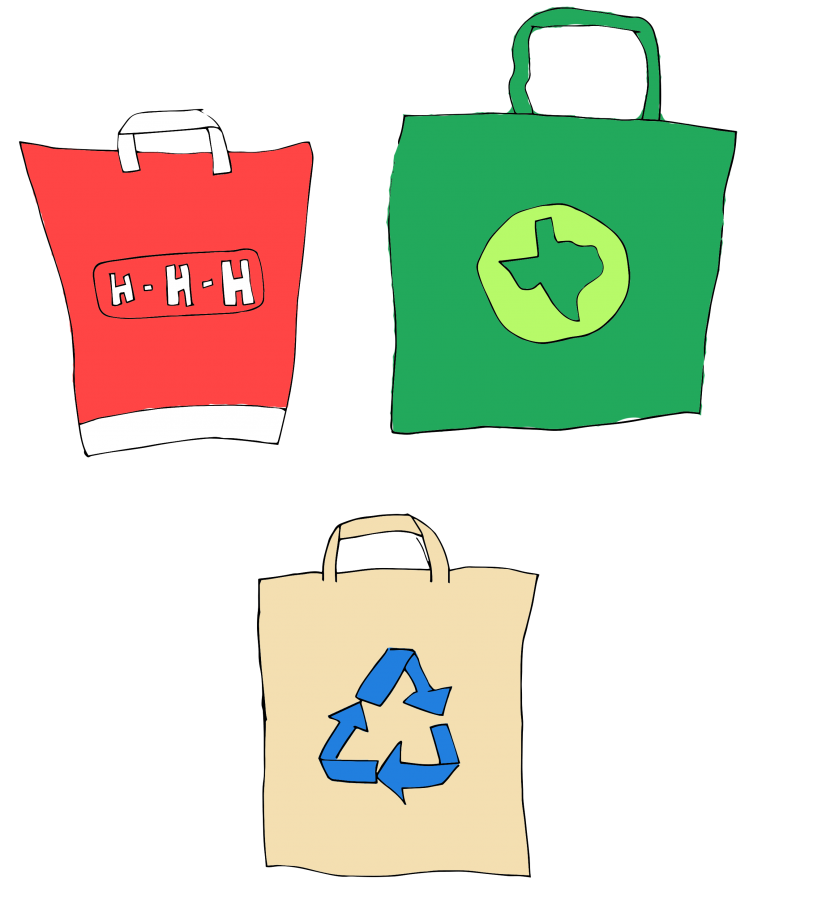Austin is full of hippies. Here, we hug our trees, make our businesses small and keep our city weird. That’s why the plastic bag ban has worked so well for us. Because of a Texas Supreme Court ruling which dictates that bag bans are unconstitutional, however, Austin can no longer enforce its ban.
Although single-use plastic bags are once again allowed in the city, reusable bags are still the better option. Even if Austin stores begin to dole out single-use bags in the near future, Longhorns need to continue to use our reusable bags
According to Austin’s bag ban report, 75 percent less plastic was found in Austin’s litter than in that of Fort Worth, considered Austin’s peer city. While this reduction in plastic is incredible, the report also notes that unless they’re used over and over again, plastic reusable bags are not that great for the environment.
Sure, single-use bags are easy. You don’t have to remember to take them in the store or buy more when you forget. But we can’t just make an eco-friendly single-use bag. According to George Bittner, neuroscience professor, no plastic resin currently on the market has been appropriately tested to ensure it doesn’t release dangerous chemicals many scientists consider potentially harmful. That means all of your plastic bags, reusable or not, can be broken down into nasty stuff.
Plastic materials break down into some chemicals that can be dangerous to humans, such as bisphenol A. Just because your water bottle came with a “BPA-free” label doesn’t mean you’re safe, however.
“Unfortunately, other replacements still release estrogenic chemicals, but plastic companies just advertise ‘BPA-free,’” Bittner said. “It’s like if I offered you a bandage that didn’t have any staphylococcus bacteria, but I didn’t mention that it might have E. coli. I didn’t say that the bandage is sterile; I just specifically say that it doesn’t have staphylococcus.”
All plastic, once it ends up breaking down in our oceans and landfills, releases some nasty chemicals. With that being said, don’t jump up to throw out your plastic reusable bags in favor of cloth ones just yet. All bags, no matter what they’re made of, have some sort of environmental impact. Plastic bags are made from petroleum and release dangerous chemicals, and cloth bags require water and land for farming. The important thing is to reuse whatever bags you already have. Until they break, get as many uses out of your reusable bags as you can. If you can use each reusable bag for a few years, you can negate the environmental effects of the production of the bag.
We can’t stop the bag ban from being lifted, but we can still choose to keep extra plastic out of our ecosystems. As UT-Austin students, we reflect Austin’s culture. Embrace that lifestyle! Use your reusable bags every time you need to pick up some groceries, again and again.
Jingling is an English junior from Georgetown.





















